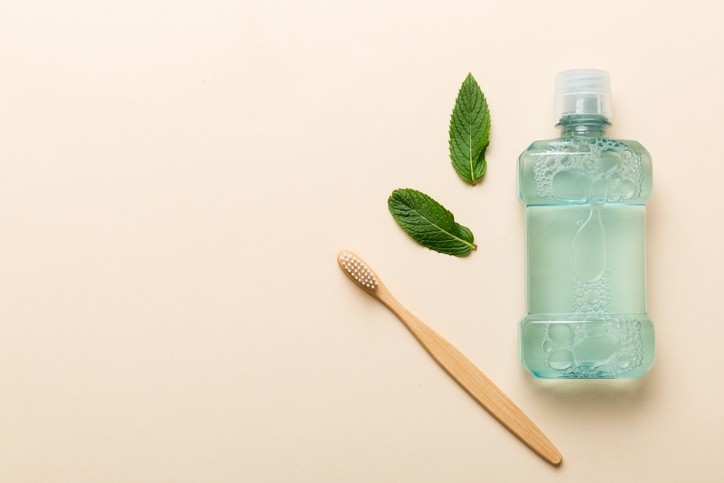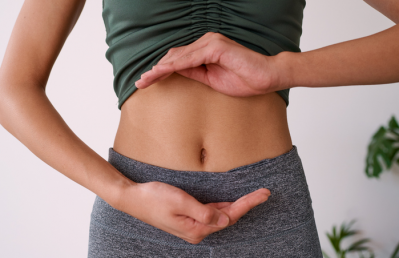Probiotic mouthwash could provide promising intervention against gingivitis

Gingivitis, characterised by inflammatory reactions in gingival tissues, poses a serious threat to oral health and can lead to more advanced conditions, such as periodontitis. Traditional treatments —including scaling and root planing (SRP) and mechanical debridement — have limitations, which has prompted the exploration of novel approaches.
For instance, SRP may not effectively reach all areas of the mouth, especially deep pockets between teeth and gums or areas that are hard to access with traditional dental tools. This can leave some areas untreated and prone to persistent gingivitis. In cases of advanced gingivitis or periodontitis, SRP alone may not be sufficient.
At the same time, systemic conditions or health issues can impact SRP’s effectiveness, and certain medical conditions or medications may affect the healing process and the body's response to the treatment.
Root planing’s effectiveness can be affected by root anatomy and the extent of root surface irregularities, which can make it challenging to eliminate all bacterial deposits. The procedure can also cause discomfort for some patients, which may lead to avoidance of follow-up treatments or regular dental check-ups. Additionally, the cost of professional dental treatments can be a limiting factor for some and access to dental care may be limited in certain regions, affecting their availability.
Selection and formulation
In a ground-breaking development, a recent Iranian study has revealed the significant impact of the probiotic strain Lactobacillus plantarum MK06 on gingivitis treatment. Conducted by researchers from the National Institute of Genetic Engineering and Biotechnology (NIGEB), Mazandaran University of Medical Sciences, Tehran University of Medical Sciences and McGill University, it involved a randomised, triple-blind, placebo-controlled trial with 42 systematically healthy participants.
Led by NIGEB, it focused on the isolation and characterisation of Lactobacillus plantarum MK06 and its subsequent incorporation into a novel mouthwash formulation. The probiotic strain, chosen based on morphological features and catalase examination, was isolated from traditionally produced yoghurt using a meticulous protocol.
The probiotic mouthwash was then formulated as a powder containing 108 colony forming units (CFU) ml− 1 of freeze-dried Lactobacillus plantarum MK06, blended with food-grade maltodextrin as a bulking agent. Users were instructed to mix the powder with tap water before use, swish for 30 seconds, then expectorate.
The study's participants were divided into experimental and control groups, with both instructed over four weeks to use either placebo or Lactobacillus plantarum suspensions for one minute twice a day after tooth-brushing.
The primary objective was to investigate the impact of Lactobacillus plantarum MK06 on gingivitis, with secondary objectives including the evaluation of clinical inflammatory parameters. Clinical parameters, including plaque index (PI), gingival index (GI), bleeding on probing (BOP) and oral hygiene index (OHI-s), were measured at the first, second and fourth weeks.
Probiotic positives
The clinical trial demonstrated a significant decrease in (GI), PI), presence / absence of BOP, and OHI-s over the four-week study period. Both the probiotic and placebo groups showed improvements, with the probiotic group exhibiting a potentially clinically significant reduction in these parameters.
In fact, the results indicated a remarkable reduction in gingival indices in the experimental group compared to the control group. While both groups showed improvement over time, the experimental group demonstrated a higher overall reduction rate. Notably, the GI showed a significant difference in the fourth week, highlighting the probiotic's effectiveness in treating gingivitis.
Specifically, the Lactobacillus plantarum MK06 probiotic strain displayed inhibitory effects on streptococcus mutans, the causal agent of tooth decay. This inhibitory action extended to gingivitis and periodontal inflammation, presenting a promising avenue for preventive oral care.
Despite the study's success, however, there were limitations in the form of challenges in participant recruitment and uncertainties about mouthwash usage. Still, unlike many previous studies focusing exclusively on children, this RCT addressed the effects of probiotics on adults of different genders.
As the world grapples with oral health challenges like periodontal disease and peri-implant mucositis / peri-implantitis, this probiotic breakthrough may offer a potential novel treatment that may surpass conventional ones.
Probiotics' ability to restore microbial balance, inhibit periodontal pathogens and modulate the immune response positions them as a viable option for improving clinical indices and microbiological parameters. The results of the study may pave the way for a new era in oral health, emphasising the potential of probiotics as a safe and effective intervention against gingivitis.
The study concluded by calling for more extensive clinical trials, with the researchers stating: “The results suggest that probiotics may be more effective as a preventive measure in early-stage periodontal diseases. Further rigorous clinical trials are needed to validate probiotics’ efficacy on microbiological parameters.”
Source: BMC Oral Health
“A tangible prospect for the treatment of gingivitis using a potentially probiotic strain Lactobacillus plantarum MK06 isolated from traditional dairy products: a triple blind randomized clinical trial”
https://doi.org/10.1186/s12903-023-03494-x
Authors: Sima Modiri, et al.











